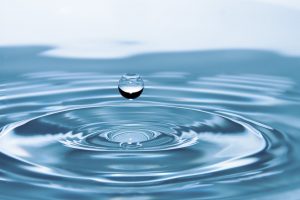Professional Legionella Testing London
Another level of legionella risk management is secured with legionella testing and bacteria water sampling. Our own testing follows industry guidelines and approved codes of practice of ACoP. We particularly follow the AcOP L8 & BS 7592:2008 or Sampling for Legionella bacteria in water systems.
As a normal part of our testing, we don’t only test for legionella. We also test for other bacteria that may potentially be harmful including E.Coli and Psuedomonas. We also identify the Total Viable Counts or TVCs of these water-based bacteria.
We receive samples in our labs on the same day that testing is conducted. We make sure that all our samples are analysed only in laboratories that are approved by the United Kingdom Accreditation Service. After the results are determined, we report them with a full technical backup and a list of actionable recommendations.
The Importance of Legionella testing in London
The main objective of conducting bacteria water sampling is to ensure the safety of the occupants of premises. The results of these tests are designed to inform future preventive measures.
Legionella testing also follows the recommendations made by the Health & Safety Executive. According to the agency, periodic water sampling should be done to ensure that legionella levels do not exceed the maximum allowable and safe numbers.
The frequency of legionella testing is based on several factors including the following:
- The type of water system in the property
- The level of inherent risk of contamination
- Other specific considerations outlined in the legionella risk management
To book our sampling service, reach out to us here.
Why Get Legionella Testing in London
 The Health and Safety Executive or HSE is entrusted with making sure landlords, employers and property managers live up to their “Duty of Care” responsibilities. Those responsibilities include making sure a property is safe for tenants, workers, contractors and others to occupy.
The Health and Safety Executive or HSE is entrusted with making sure landlords, employers and property managers live up to their “Duty of Care” responsibilities. Those responsibilities include making sure a property is safe for tenants, workers, contractors and others to occupy.
HSE guidelines do not specifically mention how often you are expected to test for legionella, but they do indicate testing must be conducted if there is a “foreseeable risk” of someone being exposed to the bacteria.
The term “foreseeable risk” leaves quite a bit of room for interpretation. But rest assured should you neglect to test and someone on your property develop Legionnaires Disease, HSE will not hesitate to hold you responsible. Essentially it is in your own best interest to take the initiative and test periodically.
Isn’t Legionnaires an American Disease?
If you thought this, you’re not alone. Because the outbreak that gave the disease its name occurred in the US a lot of people believe it is exclusive to that country. It’s not.
In the aftermath of the 1976 US outbreak, researchers went back into the clinical record and discovered that the disease has actually been around quite a while and has afflicted people in many countries.
The WHO estimates there are approximately 15 cases of Legionnaires Disease per million residents in the UK every year. That means approximately 1,000 people per year contract the disease in the UK.
What are the Symptoms of Legionnaires Disease?
Unlike the coronavirus, a person infected with legionella bacteria cannot spread it to someone else. That is, it’s not contagious. Unfortunately, it can produce an extremely serious form of pneumonia.
Symptoms that a person has contracted legionella include cough, fever, respiratory distress and body chills. In some people, symptoms are mild and pass quickly. In others, they can become quite serious, even life-threatening.

